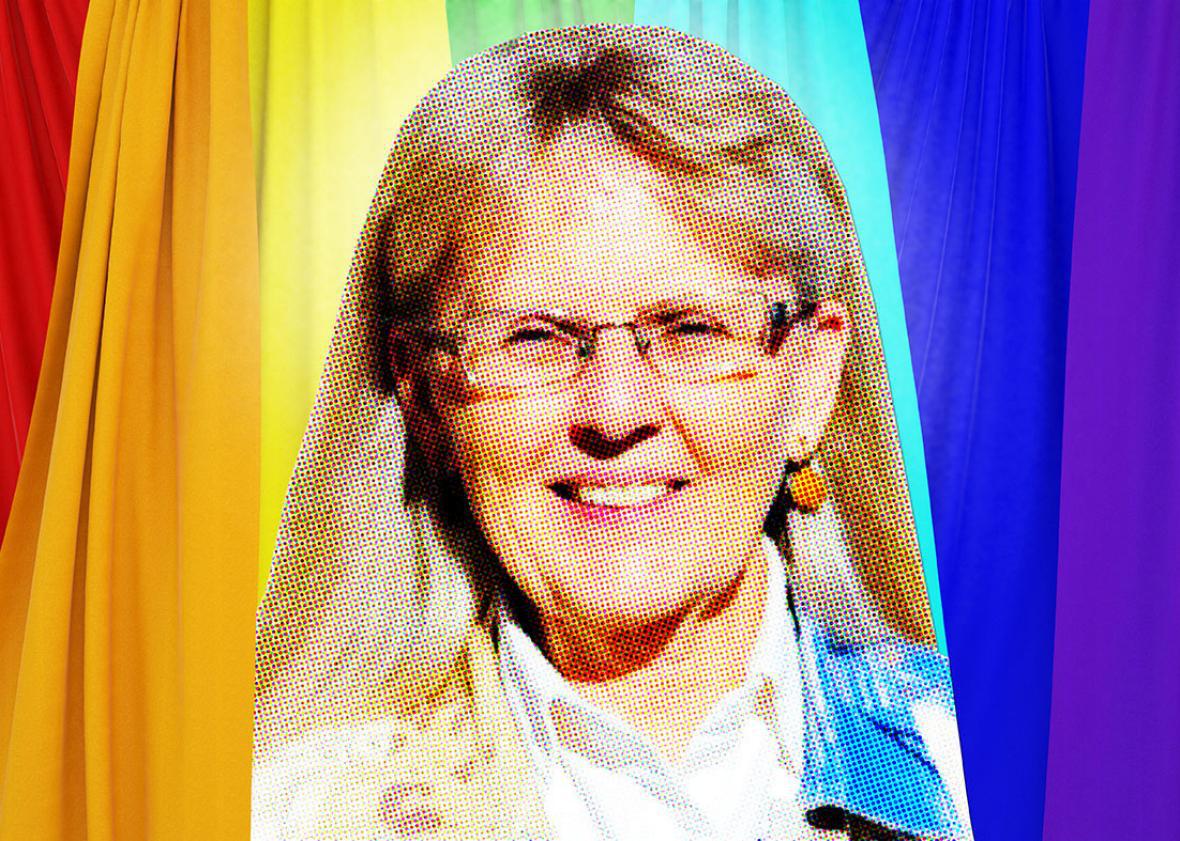On Tuesday, the Wyoming Supreme Court issued a 3–2 decision disciplining Judge Ruth Neely for her refusal to perform same-sex marriages. Neely, who serves as a municipal court judge and part-time circuit court magistrate but has no formal legal training, holds the authority under state law to marry any qualified couples. But Neely informed the Judicial Ethics Advisory Committee in 2015 that she will only marry opposite-sex couples. As she explained:
Without getting in too deeply here, homosexuality is a named sin in the Bible, as are drunkenness, thievery, lying, and the like. I can no more officiate at a same sex wedding than I can buy beer for the alcoholic or aid in another person’s deceit. I cannot knowingly be complicit in another’s sin.
Neely had previously informed a local newspaper that she “will not be able to” perform same-sex weddings. The paper printed her remarks. Shortly thereafter, the Wyoming Commission on Judicial Conduct and Ethics opened an investigation and concluded that Neely had violated the Wyoming Code of Judicial Conduct, recommending that she be removed from her judicial positions. Neely appealed to the state Supreme Court, arguing that she had not violated judicial ethics—and that even if she had, the Wyoming and United States Constitutions protected her from punishment.
A bare majority of the Wyoming Supreme Court rejected Neely’s constitutional claims but modified her penalty, issuing a “public censure” and demanding that she either marry all couples, regardless of sexual orientation, or none. The court first found that Neely had indeed violated ethics rules by besmirching the “independence, integrity, and impartiality of the judiciary,” failing to “perform all duties of judicial office fairly and impartially,” and “manifest[ing] bias” on the basis of sexual orientation. It then analyzed Neely’s claims under strict scrutiny to determine whether they violated her freedom of speech or free exercise of religion. To survive that test, the sanction must be “narrowly tailored to serve a compelling state interest.” The court found that “preserving public confidence in the integrity and impartiality of the judiciary” qualifies as a compelling state interest—as the Supreme Court held not long ago—and that its chosen sanction did not “unnecessarily circumscrib[e] protected expression.” Thus, the discipline meted out to Neely passed constitutional muster.
This decision constitutes a straightforward and unremarkable application of the law: Of course freedom of speech and religion do not grant judges the right to discriminate in the performance of their official duties, or to boast of their intention to do so. Indeed, the ruling would not be particularly noteworthy were it not for a startling dissent defending Neely’s right to discriminate against same-sex couples and to announce her opposition to equal treatment under law for gay people. The two dissenters, Justices Keith G. Kautz and Michael K. Davis, declared that the court had created “a religious test for who may serve as a judge in Wyoming.” They insisted that the First Amendment, as well as the Wyoming constitution, guarantee Neely the right to discriminate against gay couples in her capacity as a judge. And, bizarrely, they concluded that same-sex couples whom Neely turns away should simply find another judge to marry them:
There is no cause for discipline in this case, nor for concern if Judge Neely is not disciplined or precluded from performing marriages. Same sex couples have full access to marriage, all persons before the courts can be certain of an unbiased and impartial judiciary, and religious individuals can remain in public office even if they hold a traditional religious view of marriage.
Although the dissenters see no “cause … for concern” in allowing judges to discriminate on the basis of sexual orientation, the Constitution clearly does. The Supreme Court’s marriage equality decisions found that same-sex marriage bans ran afoul of the Due Process and Equal Protection Clauses in part because they “impose stigma and injury” upon gay people, giving them a “separate status” that “degrade[s]” and “demean[s]” them as “unworthy.” Allowing judges to refuse to perform same-sex marriages would revive this stigma, allowing state officials to treat gay people as though their marriages are “unworthy” and thereby posing grave equal protection concerns.
In the end, then, the dissent is really just another sideways attack on marriage equality itself. The Wyoming Supreme Court was right to reject Neely’s constitutional claims and courageous in safeguarding gay people’s rights so unflinchingly. Let’s hope other state Supreme Courts are similarly coolheaded as they consider the next round of litigation designed to degrade same-sex couples under the law.
